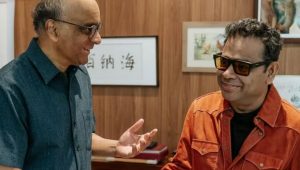President of South Africa Cyril Ramaphosa in July signed legislation into law to recognise sign as the country’s 12th official language, in a bid to empower people with disabilities in the country.
Only 41 countries globally recognise sign language as an official language and four of these countries – Kenya, South Africa, Uganda and Zimbabwe – are in Africa.
At the signing ceremony at the Union Buildings in Pretoria, the seat of government, Ramaphosa said that South African Sign Language (SASL) will empower those living with disabilities. A number of learners with hearing impairments attended the signing ceremony. The leader assured the community that many barriers between abled South Africans and the deaf community would be addressed, resolving issues of access to education, economic and other social services.
The new legislation seeks to advance the cultural acceptance of SASL; ensure the realisation of the rights of persons who are deaf and hard of hearing to equal protection and benefit of the law and human dignity; and promote inclusive and substantive equality and prevent or eliminate unfair discrimination on the grounds of disability, as guaranteed by Section 9 of the Constitution.
Until the advent of the first democratic government under Nelson Mandela in 1994, only English and Afrikaans were recognised as official languages. The new Constitution has now recognised important languages spoken in the country, including Zulu and eight indigenous languages, a few of them shared by neighbouring states.















